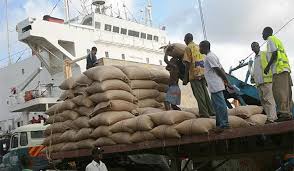Nigeria’s imported food inflation reached a staggering 42.29% in November 2024, according to the latest Consumer Price Index report released by the National Bureau of Statistics. This represents a sharp increase from 23.74% recorded in November 2023, marking an 18.55 percentage point year-on-year surge.
On a month-to-month basis, the inflation rate rose from 40.96% in October 2024, adding 1.33 percentage points within a single month.
The data underscores the unrelenting climb of imported food prices throughout 2024, starting at 26.29% in January and breaching the 40% mark by October. November’s record-breaking figure of 42.29% is the highest inflation rate for imported food recorded in two years.
Factors Driving Inflation
The alarming rise has been linked to a combination of factors, including currency devaluation, global supply chain disruptions, and inefficiencies in domestic policy implementation.
In a bid to curb soaring prices, the Federal Government introduced a 150-day duty-free import window for food commodities in July 2024. The measure targeted staple goods such as maize, husked brown rice, wheat, and cowpeas, with the aim of reducing import costs and making food more affordable. Under the policy, imported food items would be subject to a Recommended Retail Price.
However, the initiative has been hindered by bureaucratic delays, slowing its rollout and frustrating its intended impact.
Rising Prices of Staple Foods
Since the announcement of the duty-free policy, the cost of imported food commodities has continued to rise. For instance, the average price of imported high-quality rice has surged by 144.77% year-on-year. Between July and September 2024, the price of one kilogram of imported rice increased by 3.21%, climbing from N2,329.05 to N2,403.86.
A Challenging Outlook
The delays in implementing the duty-free food policy have compounded challenges for millions of Nigerians already grappling with the impact of inflation. Experts have called for swift action to streamline bureaucratic processes and bring relief to consumers.
The ongoing rise in food prices continues to exacerbate food insecurity and strain household budgets, making it crucial for the Federal Government to expedite its policy implementation to stabilize the market and ease the burden on Nigerians.

